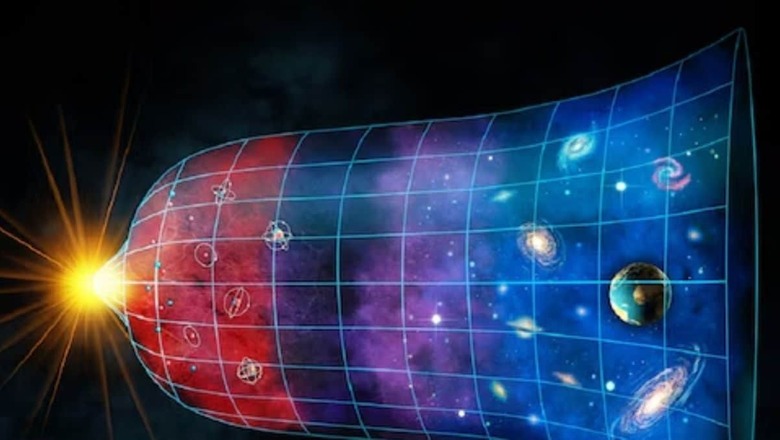
views
A recent study published in the Journal of Cosmology and Astroparticle Physics suggests that the universe may have had a “secret life” before the Big Bang.
The researchers suggest that before the Big Bang, the universe went through a phase of contraction during which black holes were formed, which could potentially explain the enigmatic nature of dark matter.
The study says that the universe initially contracted and reached an extremely dense state before “bouncing” and entering the expansion phase. This challenges the traditional assumption that the universe was formed by a single event, the Big Bang, followed by rapid expansion. According to the study, this rebound could have profound consequences for our understanding of black holes and dark matter.
In addition, the researchers suggest that during the contraction phase of the universe, density fluctuations may have led to the formation of small black holes. These primordial black holes, which survived the rebound and persisted into the current expansion phase, could potentially form the elusive dark matter that makes up about 80% of the universe’s matter.
“Small primordial black holes can form in the early phase of the universe, and unless they are too small, their decay by Hawking radiation is not efficient enough to get rid of them, so they would still exist today. With a mass roughly equivalent to that of an asteroid, they could contribute to dark matter or even solve this problem altogether,” explains Patrick Peter, research director at the French National Center for Scientific Research (CNRS).
If this theory proves true, it could revolutionize our understanding of the universe, especially about black holes and dark matter. The existence of these primordial black holes could provide a compelling explanation for the enigmatic nature of dark matter, which has long eluded scientists because it does not interact with light.
Meanwhile, researchers hope that future gravitational wave detectors, including the Laser Interferometer Space Antenna (LISA) and the Einstein Telescope, will be able to identify the gravitational waves emitted during the formation of these primordial black holes. If detected, these observations could provide important evidence for the hypothesis that these black holes are made of dark matter.




















Comments
0 comment